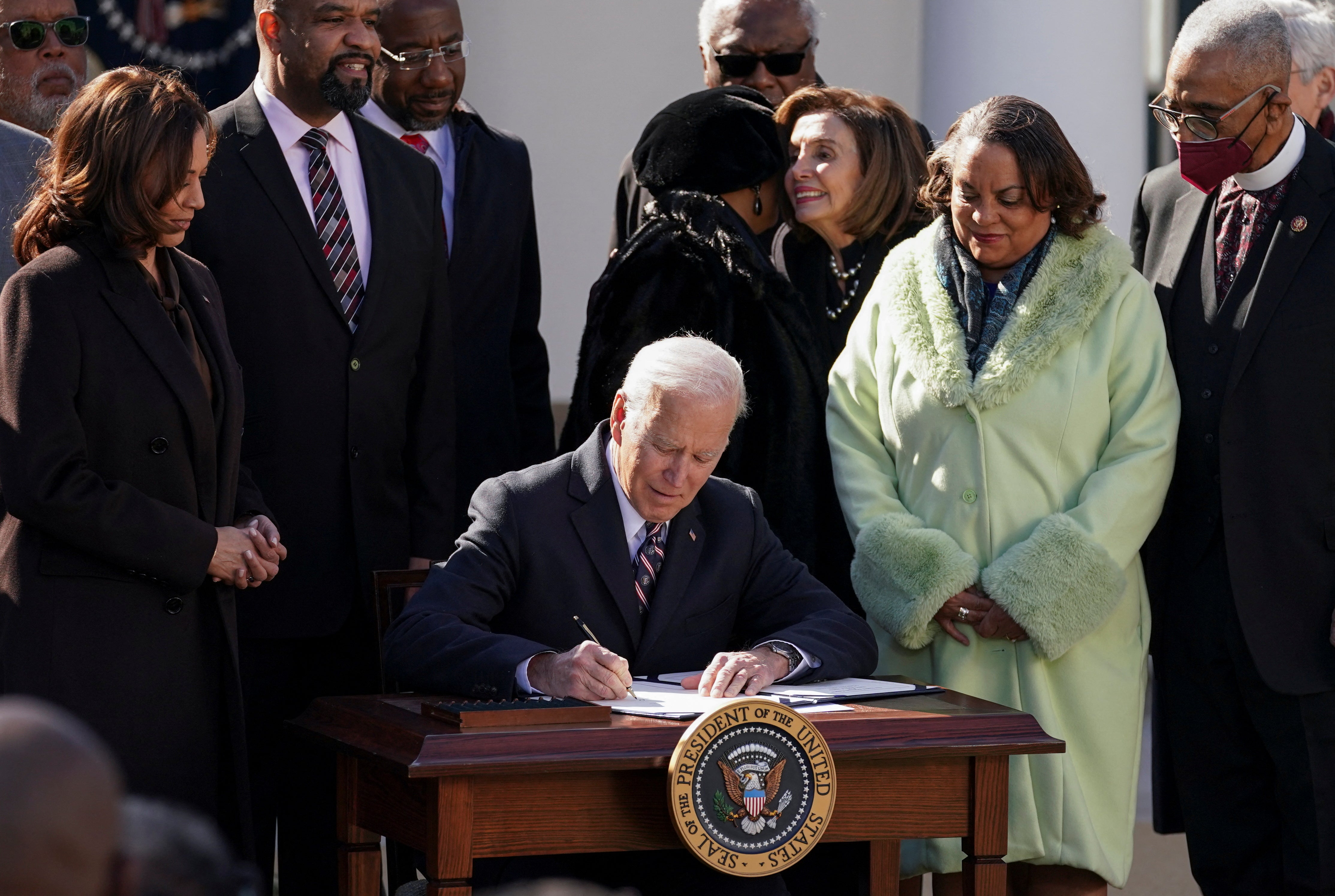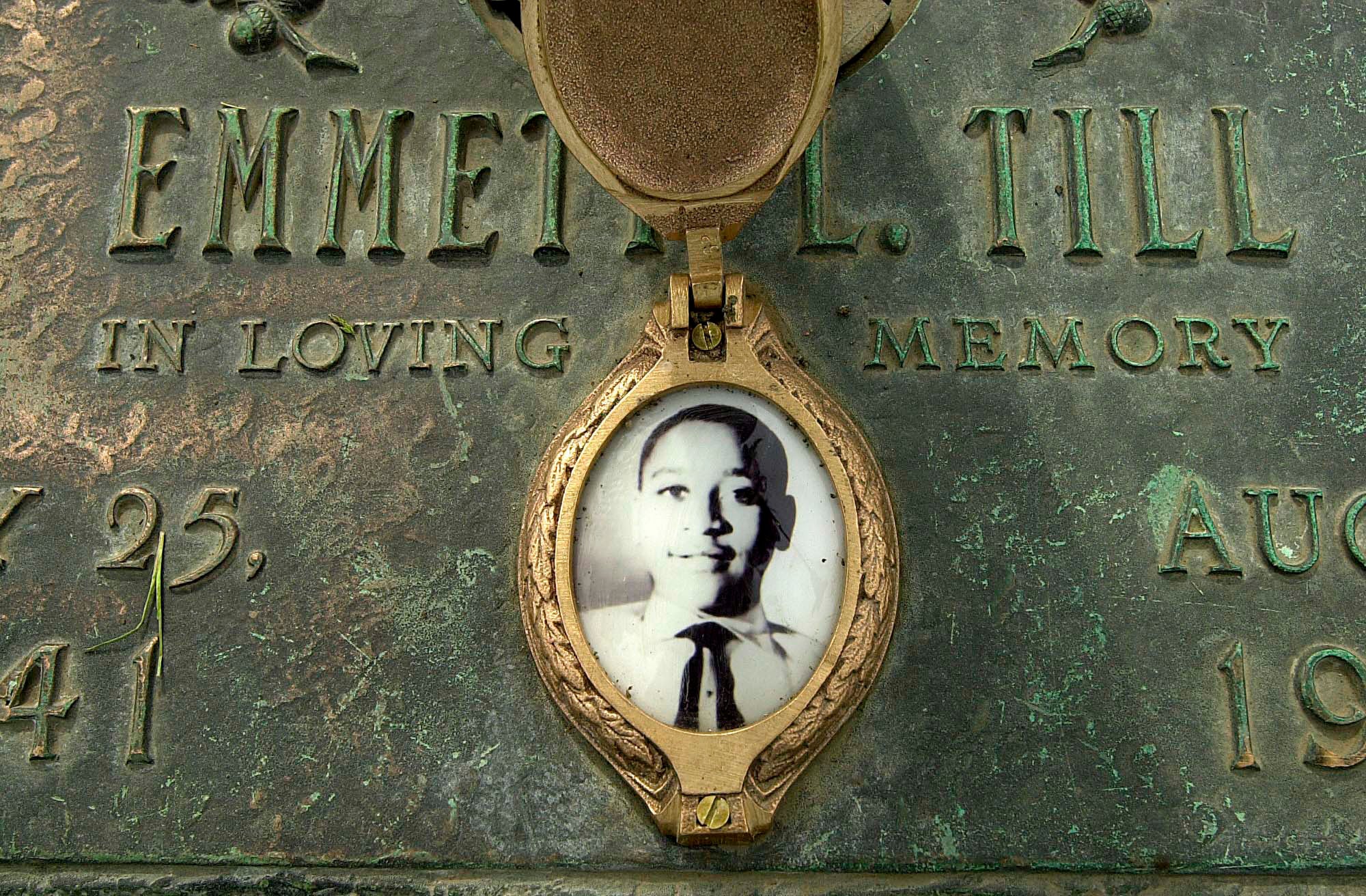Joe Biden signs law making lynching a federal hate crime: ‘Hate never goes away, it only hides’
Lynching formally designated a hate crime after 200 legislative attempts over the last century

Your support helps us to tell the story
From reproductive rights to climate change to Big Tech, The Independent is on the ground when the story is developing. Whether it's investigating the financials of Elon Musk's pro-Trump PAC or producing our latest documentary, 'The A Word', which shines a light on the American women fighting for reproductive rights, we know how important it is to parse out the facts from the messaging.
At such a critical moment in US history, we need reporters on the ground. Your donation allows us to keep sending journalists to speak to both sides of the story.
The Independent is trusted by Americans across the entire political spectrum. And unlike many other quality news outlets, we choose not to lock Americans out of our reporting and analysis with paywalls. We believe quality journalism should be available to everyone, paid for by those who can afford it.
Your support makes all the difference.More than a century after such legislation was first introduced, President Joe Biden has signed into law a bill to make lynching a federal hate crime, condemning the “pure terror to enforce the lie that not everyone belongs in America, not everyone is created equal.”
The president signed the Emmett Till Anti-Lynching Act – named after the Black teenager whose murder in 1955 reflected Jim Crow-era violence that galvanised the Civil Rights movement – at a ceremony in the White House Rose Garden surrounded by civil rights advocates and Black legislators.
“From the bullets in the back of Ahmaud Arbery, to countless acts of violence, countless victims both known and unknown … racial hate is not an old problem, it’s a persistent problem,” the president said on 29 March. “Hate never goes away. It only hides, it hides under the rocks. Given just a little bit of oxygen it comes roaring back out, screaming. What stops it is all of us, not a few.”
The law designates lynching as a crime punishable by up to 30 years in prison. It passed the House of Representatives on 7 March by a vote of 433-7 and cleared the US Senate by unanimous consent.
More than 6,500 people, mostly African Americans, were killed in racist attacks between 1865 and 1950, in the aftermath of the US Civil War and emancipation, through white militia terror during Reconstruction, and in the years surrounding the Civil Rights movement, according to the Equal Justice Initiative.
Despite more than 200 legislative attempts to codify antilynching rules – beginning with a bill introduced in 1900 by US Rep George Henry White, then the only Black member of Congress – no measure prevailed. A federal hate crime statute was eventually signed into law in the 1990s.
The latest bill, championed by US Rep Bobby Rush, marks a “moment of historic consequence,” according to Congressional Black Caucus Chairwoman Joyce Beatty.
“This bill clearly conveys our nation will no longer ignore this shameful chapter of our history, and the full force of the US federal government will be brought to bear against those who commit this heinous act,” she said.

“Lynching is a longstanding and uniquely American weapon of racial terror that has for decades been used to maintain the white hierarchy,” Congressman Rush said in a statement. “Perpetrators of lynching got away with murder time and time again – in most cases, they were never even brought to trial.”
Michelle Duster, the great-granddaughter of Ida B Wells, echoed the civil rights leader’s remarks that “our country’s national crime is lynching.”
On 22 March, 1898, Ms Wells appealed to then-President William McKinley at the White House to punish those responsible for the lynching of Frazier Baker – the postmaster of Lake City, South Carolina – and bring to his attention the killings of hundreds of people.
“Nowhere in the civilized world save the U.S. of America do men, possessing all civil and political power, go out in bands of 50 and 5,000 to hunt down, shoot, hang or burn to death a single individual, unarmed and absolutely powerless,” she said at the time.
Her great-granddaughter, 124 years later, said outside the White House that “we finally stand here today, generations later, to witness this historic moment.”

Join our commenting forum
Join thought-provoking conversations, follow other Independent readers and see their replies
Comments